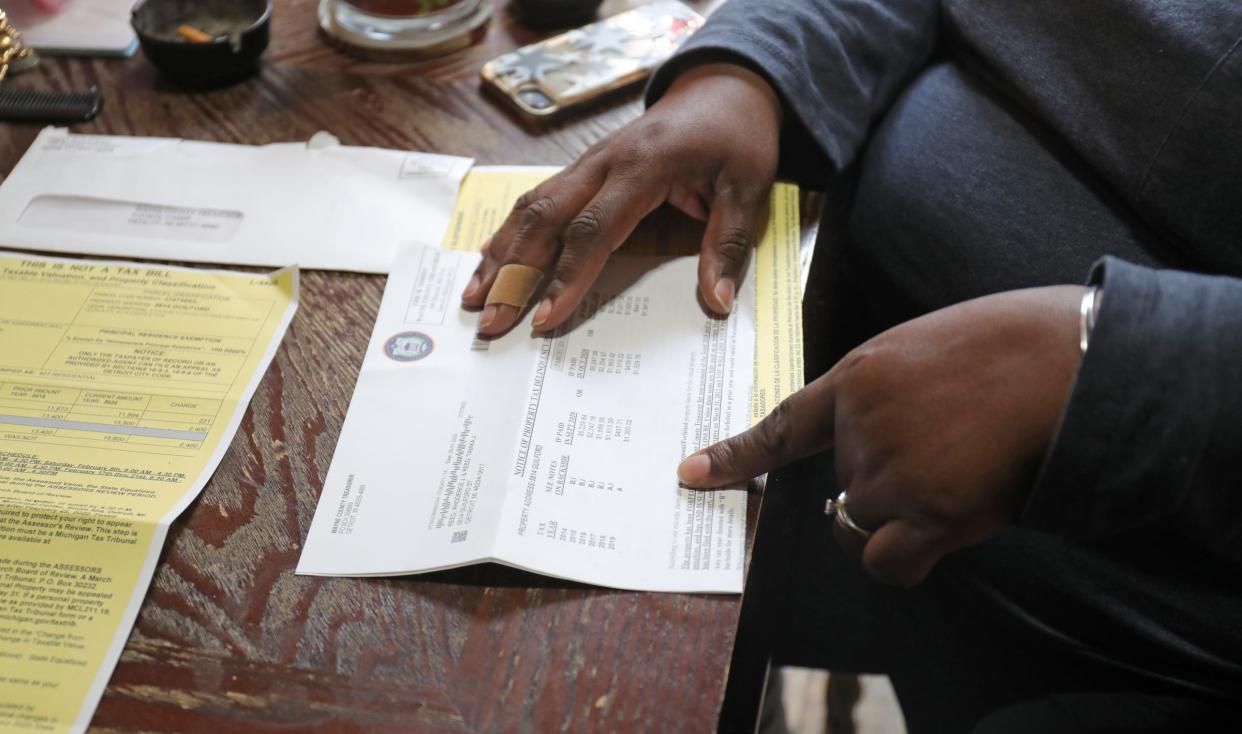Change in housing relief program can help Detroiters at risk of foreclosure

A coalition of community groups joined Wayne County Treasurer Eric Sabree on Thursday to urge Detroiters to apply for a statewide program that has just expanded to help bring down their delinquent property taxes and keep them in their homes.
Launched last year, the Michigan Homeowner Assistance Fund (MIHAF), backed by federal pandemic dollars, provides up to $25,000 in grants to people financially impacted by COVID-19 to prevent mortgage and property tax foreclosures and utility shut-offs. Now, those who owe property taxes for years before 2019 can apply for help — a change applauded by the Coalition for Property Tax Justice, which advocated for the move.
Meanwhile, Sabree said that change to the MIHAF program means those in owner-occupied properties have until April 20 to apply. Otherwise, Friday is the deadline to pay off delinquent property taxes to avoid foreclosure.
"Don't let the money go somewhere else, if we need it here in Wayne County. Take advantage of MIHAF," Sabree said at a virtual news conference.
What prompted the change
More than 1,800 owner-occupied homes in Detroit were at risk of foreclosure but that number has come down, Sabree said, because of the coalition and Wayne Metropolitan Community Action Agency's efforts to sign people up for MIHAF or a poverty tax exemption.
Now, 97 owner-occupied homes in Detroit — and 31 outside of the city — are at risk of foreclosure and those taxpayers can apply for MIHAF in order to stay in their homes, he said.
On March 20, the Michigan State Housing Development Authority (MSHDA), which administers the program, started allowing those who previously applied for property tax help through MIHAF to reapply for payments of delinquent taxes before 2019.
"It’s a streamlined process and we are working with treasurers across the state to assist," said MSHDA Communications Director Katie Bach in an email.
For new applications coming in after March 20, MIHAF counts all delinquent tax years for those who qualify.
"The data was telling us that there was about 6,000 Detroiters that have past due property taxes 2019 and prior," said Louis Piszker, CEO of Wayne Metro.
Edythe Ford, director of community engagement for MACC Development, a community organization focused on Detroit's east side, said MIHAF helped her pay property taxes for 2020 and 2021 and her water and DTE bills. She urged residents to apply for the program.
MIHAF has received more than 40,000 applications and approved nearly 18,700, according to MSHDA's online dashboard. More than $44.6 million has been used for property tax help.
How to get help
For more information about MIHAF, go to https://bit.ly/MIHAFProgram or call the MIHAF help line at 844-756-4423.
In Wayne County, to make an appointment with Wayne Metro for help completing an MIHAF application, go to https://bit.ly/WayneMetroMIHAF or call 313-244-0274, from 9 a.m. to 7 p.m. daily.
To contact the Wayne County Treasurer's Office, call 313-224-5990 or visit https://bit.ly/WayneCountyTreasurer. Though appointments are booked, seniors and those with disabilities can still go into the office for help, Sabree said.
Nushrat Rahman covers issues related to economic mobility for the Detroit Free Press and Bridge Detroit as a corps member with Report for America, an initiative of The GroundTruth Project. Make a tax-deductible contribution to support her work at bit.ly/freepRFA.
Contact Nushrat: nrahman@freepress.com; 313-348-7558. Follow her on Twitter: @NushratR. Sign up for Bridge Detroit's newsletter. Become a Free Press subscriber.
This article originally appeared on Detroit Free Press: Change in housing program can help Detroiters stay in their homes

